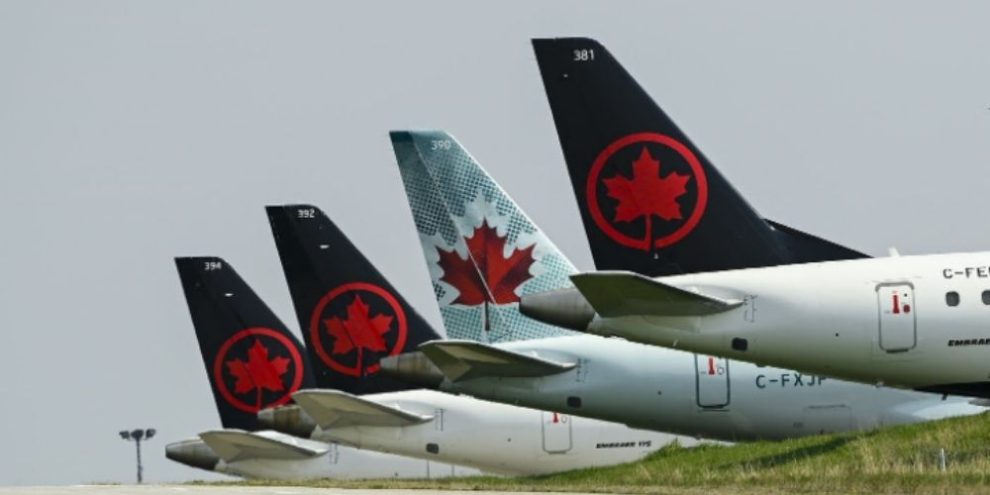
By Christopher Reynolds in Montreal
Air Canada more than tripled its revenues last quarter as demand for travel revved back up, though a net loss of nearly $1 billion signalled the pandemic recovery is far from complete.
After the Omicron variant of COVID-19 slowed bookings in January, the airline's sales then spiked in March as travel restrictions eased, pushing bookings to 90 per cent of 2019 levels.
"We are very positive on the rest of the year and continued growth over the next several years," CEO Michael Rousseau told analysts on a conference call Tuesday.
The country's largest airline maintained full-year forecasts that capacity will average out at roughly three-quarters of 2019 and its earnings before interest, taxes, depreciation and amortization as a percentage of operating revenue or EBITDA margin will be between eight and 11 per cent.
However, Air Canada's capacity continues to lag U.S. airlines and business travel remains at half the volume it did three years ago, said chief commercial officer Lucie Guillemette.
"International might take a little bit longer," she said, referring to overseas business bookings, even as domestic and leisure travel ramps up.
Air Canada hopes to take advantage of a renewed appetite for corporate travel in the United States as Air Canada shores up U.S. flight schedule, she added.
Meanwhile, rising fuel costs, inflation and uncertainty stemming from Russia's invasion of Ukraine add more headwinds to a buffeted industry.
"We believe that much of this increase can be recovered in fares," chief financial officer Amos Kazzaz said of jet fuel prices, which were up nearly 119 per cent year over year as of April 22, according to the International Air Transport Association. Spiking in March amid the war in Ukraine, the price has nudged down by 5.5 per cent over the past month.
RBC analyst Walter Spracklin said fuel costs have "eaten into the otherwise positive benefit of higher ticket fares," while the prolonged plunge in business travel remains a “key risk" for Air Canada.
The Montreal-based airline reported a first-quarter loss of $974 million or $2.72 per diluted for its first quarter compared with a loss of $1.30 billion or $3.90 per diluted share a year earlier.
Revenue totalled $2.57 billion for the three months ended March 31, compared with $729 million in the first three months of 2021.
Analysts on average had predicted a loss of $1.49 per share, according to financial data firm Refinitiv.
First-quarter cost per available seat mile, or CASM — a key industry metric — was 21.8 cents, compared with 42.2 cents a year earlier. Its adjusted CASM was 15.6 cents, compared with 40.4 cents in the first quarter of 2021.
This report by The Canadian Press was first published April 26, 2022.
Feature image via The Canadian Press






